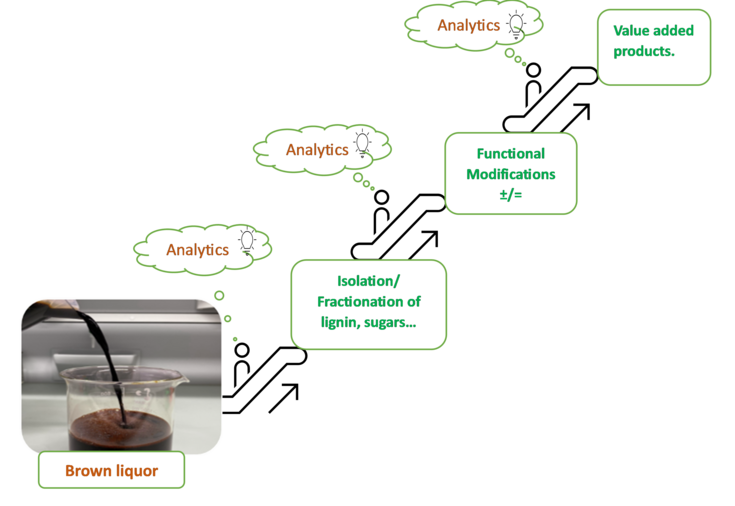Isolation, analysis, and valorization strategies of soda pulping effluent streams
SUPERVISOR: Alexander BISMARCK
PROJECT ASSIGNED TO: John Chrysostom OPEDUN
Annual plant biomass such as straw, corn stover, and switchgrass have various benefits in terms of their utilization and are considered promising renewable chemical resources. The plants contain valuable components such as cellulose, lignin, hemicellulose, extractives, and minerals that can be used non-energetically in the production of bio-based chemicals and materials. Due to major concerns about environmental pollution from fossil fuels and petrochemicals, there is an urgent need to maximize the use of green and renewable resources from plant biomass.
The soda pulping process is a less severe and more economical alternative to kraft pulping for extracting these components and is favoured by the intrinsic chemical composition of this biomass, allowing sufficient depolymerization and preservation of useful chemical moieties and functionalities in the product streams.
Lignin, as one of the recoverable co-products is the most abundant natural source of aromatics, from which better applications can be derived, brown liquor from soda pulping is also rich in highly utilizable components like hemicelluloses, extractives, fermentable and modifiable sugars, and inorganic components rich in silica.
The research project will focus on separation, analysis, and utilization of product streams from soda pulping. Possible valorisation and application pathways at macromolecular and micromolecular levels with and without chemical modifications will be explored to come up with sustainable and value-added products.

